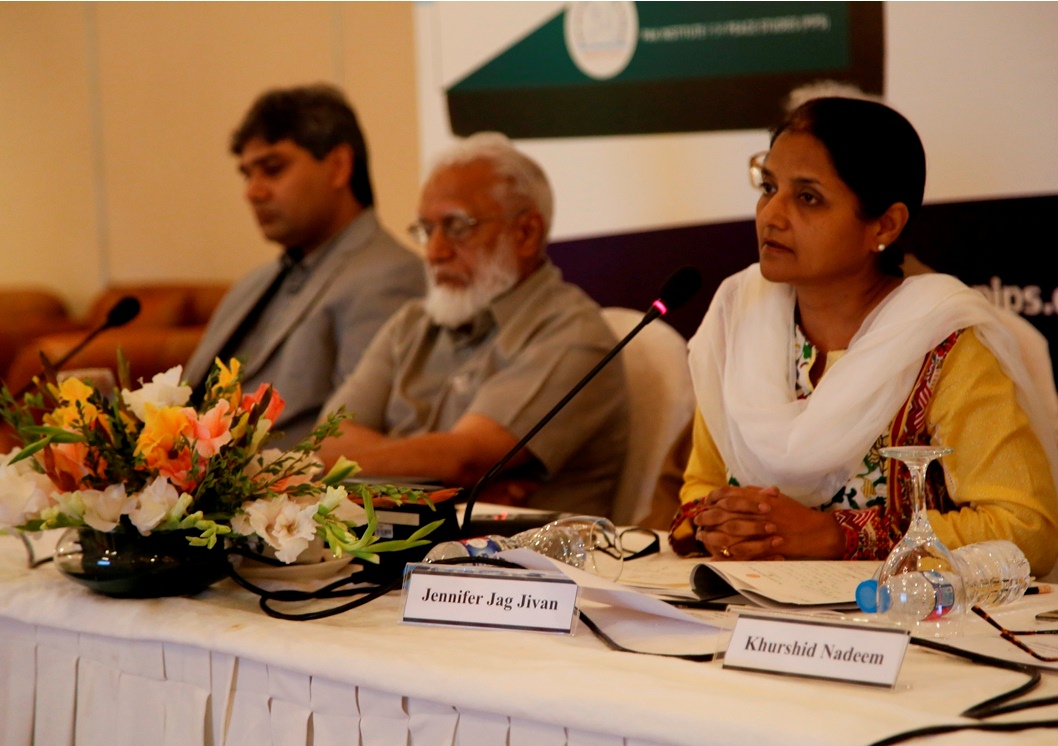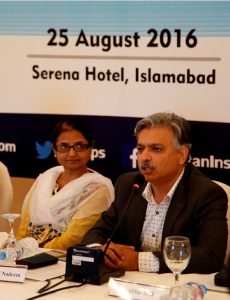‘Critical thinking will help build inclusive society’
Teachers should encourage critical thinking in classrooms so that students can ask questions about the world around them. The state, too, should invest in social sciences. These will, in the long run, help nurture an inclusive narrative in the country.
These were some of the key points discussed at the launch of the study by Pak Institute for Peace Studies (PIPS), an Islamabad-based think tank.
The study “Promoting Inclusive and Tolerant Educational Narratives” itself compiles findings of the three 2-day workshops held with 101 university and college teachers, mostly of Islamic studies and Arabic departments, from all over the country.
Sharing the study, Mr. Safdar Sial, PIPS, argued these teachers were chosen because, as the study notes, they also steer and influence the discourse of subjects like Pakistan studies, history, and social sciences – subjects often singled out for biases against minorities.

Speakers show that as pluralistic spaces shrink, teachers need to learn how to sensitively engage with a diverse set of students. Former chairman of the Council of Islamic Ideology, Dr. Khalid Masud, called for promoting universal values, instead of narrow identities, including religious ones, which divides people. These universal values can be achieved through a milieu that encourages critical thinking.

The report called for making existing curricula free of controversial topics and hate material. Jennifer Jag Jivan, Christian Study Center, endorsed the report, calling for a curriculum that involves non-Muslims too. The study noted that instead of promoting stereotypes, curriculum should highlight positives of all religions including commonalities.
Participants, or teachers, too seemed convinced that a cause of radicalization inside the country has been education. The study too noted, in the rationale of the entire exercise, how education is one of the key components of counter-violent extremism model. The report too points out that it is not about curriculum alone that shapes students thinking, but pedagogy too does that. If teachers are sensitized enough, they can help grow a society embracing all.
 Former rector, Islamic International University, Professor Fateh Muhammad Malik delivered the keynote address. He explored the trend of terror incidents perpetrated by highly-educated people. Prof. Malik countered that these highly-educated radicals often from applied sciences. He called for inculcating knowledge that bridges religious and literary education.
Former rector, Islamic International University, Professor Fateh Muhammad Malik delivered the keynote address. He explored the trend of terror incidents perpetrated by highly-educated people. Prof. Malik countered that these highly-educated radicals often from applied sciences. He called for inculcating knowledge that bridges religious and literary education.
Prof. Malik also chronicled how the state alienated social sciences. Military regimes, for instance, didn’t’ promote subjects like logic and philosophy, because their students would end questioning the regimes themselves, he observed.
Columnist Khursheed Nadeem, who moderated the session, seconded this viewpoint, sharing how social sciences were deliberately ignored only recently, at the cost of natural sciences.
Media Coverage (Pre- and post-event)

